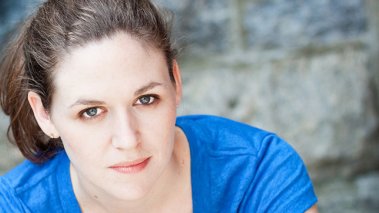Table of Contents
Under Legislative Pressure, USC Upstate Cancels Performance on Life as a Lesbian

A one-hour program called “How to Become a Lesbian in 10 Days or Less,” scheduled as part of the Bodies of Knowledge Symposium at the University of South Carolina Upstate (USC Upstate) today and tomorrow, has been canceled after state legislators criticized the piece. State Senator Mike Fair called the program a “recruiting” tool, and Senator Kevin Bryant said that it would “promote perversion.”
USC Upstate’s assistant vice chancellor for university communications, Tammy E. Whaley, explained that the title of the program “is satirical in nature but has not been received as such.” Perhaps sensing that misunderstood satire (and even promotion of “perversion”) is nevertheless protected speech at a public institution like USC Upstate, Whaley continued to try to justify the decision, saying: “The controversy surrounding this performance has become a distraction to the educational mission of USC Upstate and the overall purpose of the Bodies of Knowledge symposium.”
A quick look beyond the title of the performance, however, indicates that it would directly serve the purpose of the symposium: for students to hear about the different experiences of LGBT individuals and to open discussions about LGBT issues. Performer Leigh Hendrix said the show is “about finding and using your voice” and her “ideas of what one has to do to be queer, to be an artist, to be a human in the world.” For USC Upstate to censor a portion of this symposium in response to “distraction” caused by opponents of the program gives those opponents an impermissible “heckler’s veto” over protected speech—and gives opponents of other protected expression a strong incentive to purposefully cause or threaten disruptions in the future.
The university’s decision is particularly disappointing coming on the heels of South Carolina’s House Ways and Means Committee approving budget cuts of $17,142 and $52,000 to USC Upstate and the College of Charleston, respectively, after those institutions assigned books focusing on LGBT topics as part of required freshman reading courses. FIRE wrote to Governor Nikki Haley on March 12 to urge her to reject these cuts. It is extremely disappointing to see not just legislative pressure to exclude certain viewpoints from South Carolina universities, but also a public university willingly yielding to requests for censorship.
Ryan Wilson, executive director of the gay rights organization South Carolina Equality, objected to the cancellation and observed that it opens the door for further censorship:
Any efforts by the legislators to suppress academic freedom or programs on campus is wrong. ... If they do this on one topic, what is to stop them from doing it with others? Legislators should not be meddling in this way.
We at FIRE agree that legislative attempts to limit the full discussion and exploration of controversial topics on campus endangers the position of universities as the ultimate “free speech zones” for a free society. If just a few critics can shut down a program at a public university because they disagree with the program’s message, then all planned seminars and presentations are at risk of being censored. Students at USC Upstate should demand that administrators take responsibility for their grave error in this case and reaffirm to both the USC Upstate community and state lawmakers that campus speech may not be censored upon the request of those who disagree with the speaker’s viewpoint.
Recent Articles
FIRE’s award-winning Newsdesk covers the free speech news you need to stay informed.

BREAKING: New Title IX regulations undermine campus free speech and due process rights


Stanford president and provost cheer free expression in open letter to incoming class
